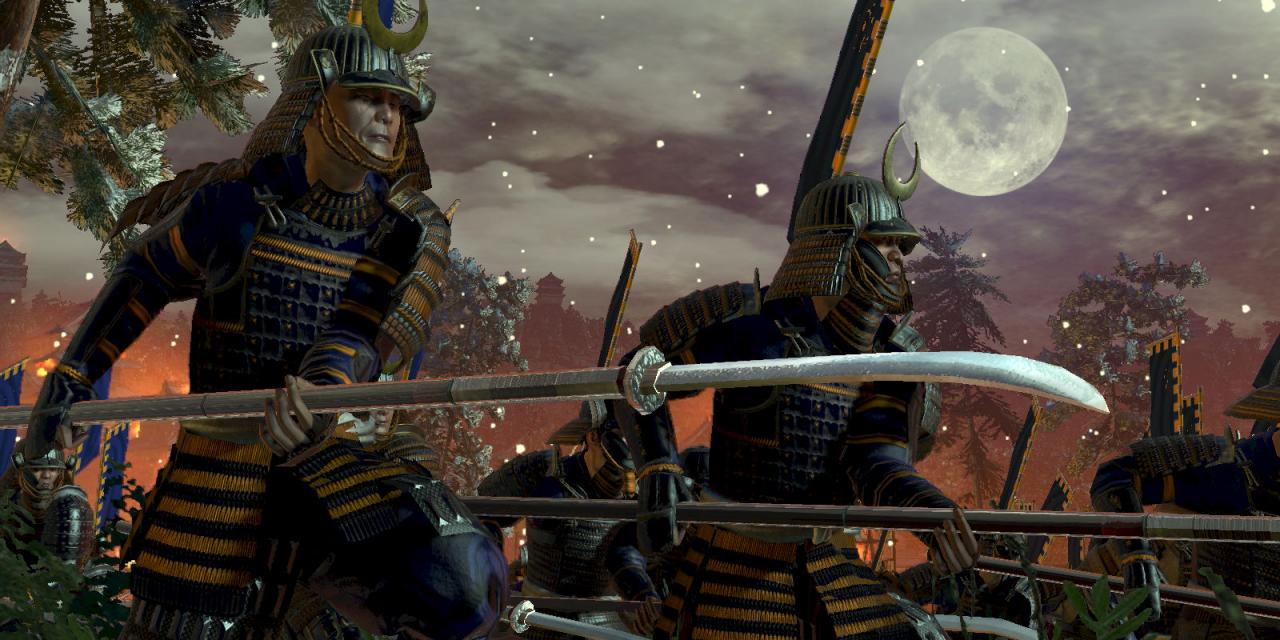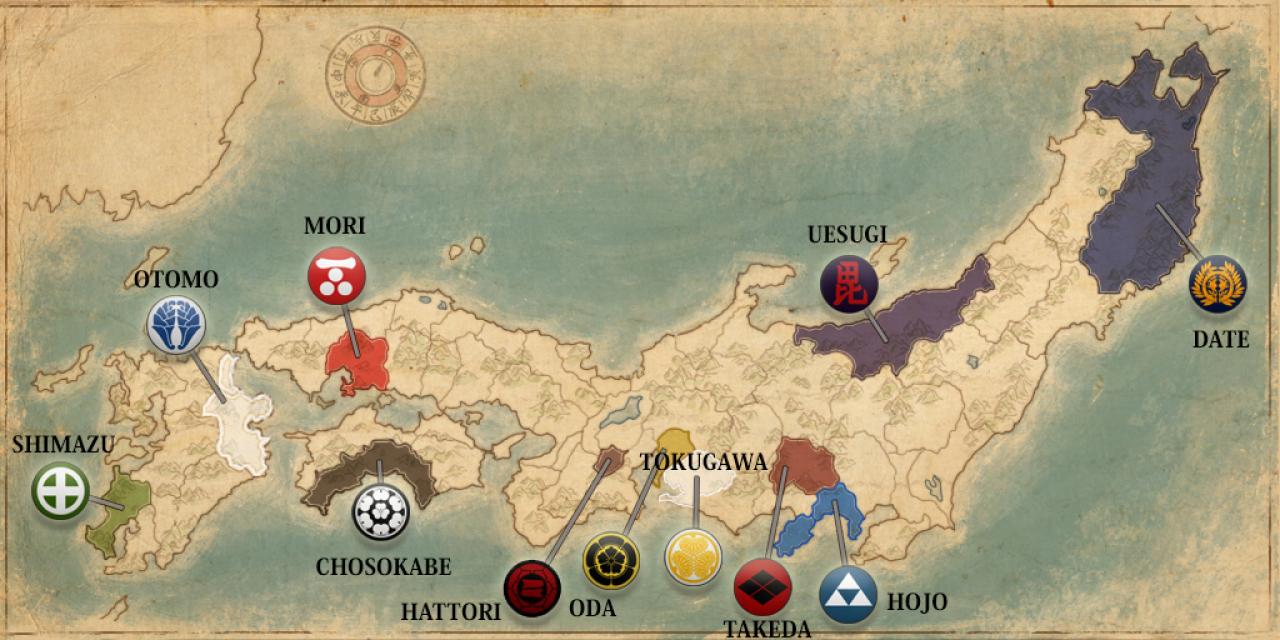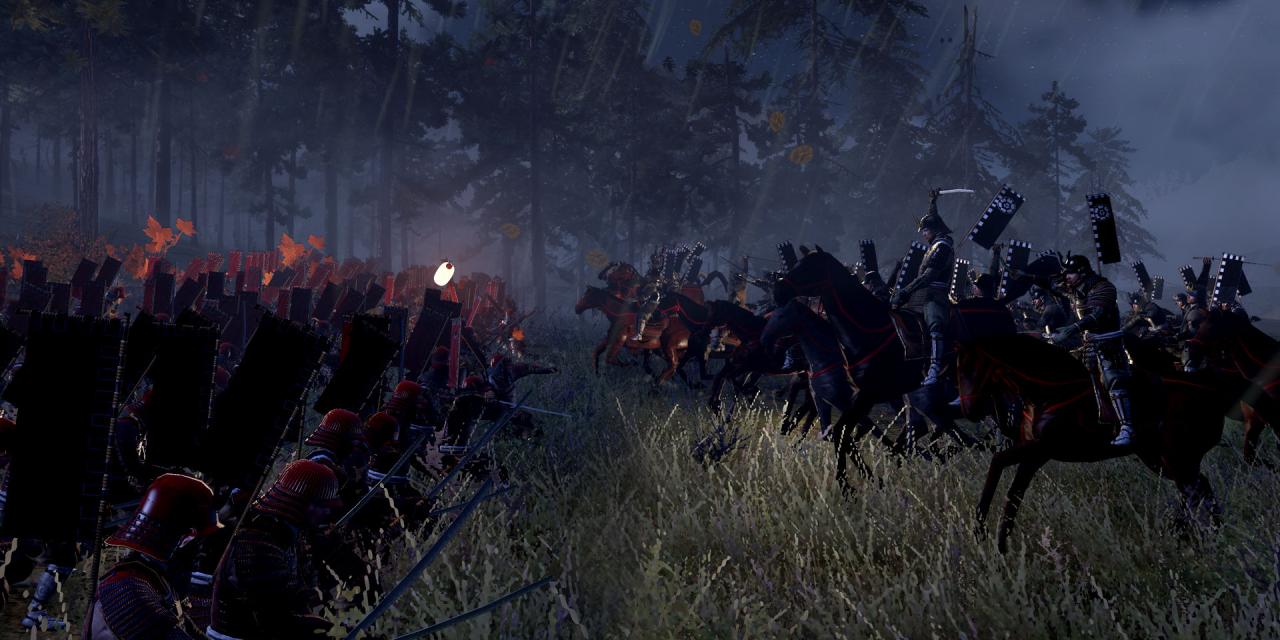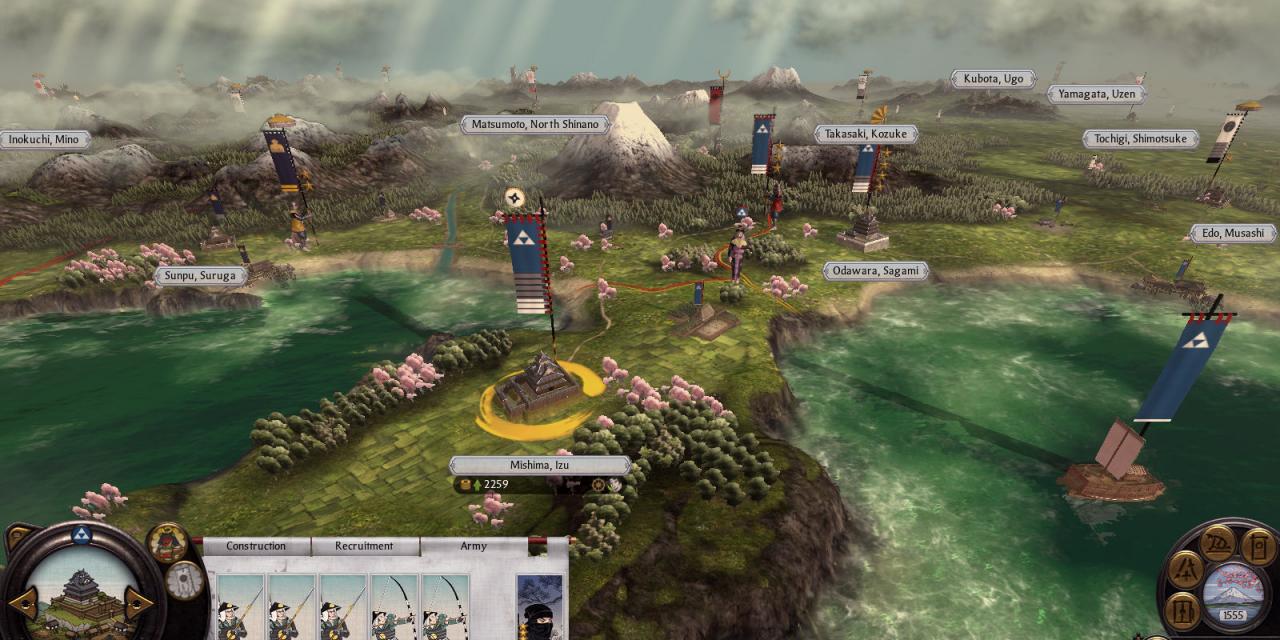



Each faction in Shogun 2: Total War comes with its own unique strengths and weaknesses that can significantly impact your strategy and gameplay. Their distinct characteristics can cater to various play styles, from aggressive military conquests to strategic diplomacy and espionage.
1. Oda Clan
Originating from Owari, the Oda clan is known for their innovative tactics and use of ashigaru (foot soldiers), making them highly versatile. Widely considered as the best clan to play in Shogun 2. Oda Nobunaga is known for unifying Japan in the 16th century.
Pros:
- Lower costs and improved capabilities for ashigaru units, allowing for large, effective armies.
- Good economic foundation due to fertile home provinces.
Cons:
- Reliance on ashigaru can be a weakness against well-trained samurai and cavalry units.
- Positioned in the center of Japan, surrounded by potential enemies on all sides.
2. Shimazu
The Shimazu clan is based in the southern province of Satsuma. Known for their exceptional samurai, they are a formidable force in melee combat.
Pros:
- Enhanced morale and training for samurai units, making them extremely effective in close combat.
- Starts with access to superior blacksmith resources, which can further enhance their military units.
Cons:
- Isolated starting position can make early expansion and trade more challenging.
- Limited naval capabilities at the start, which could hinder their ability to control important trade routes.
3. Hojo
Originating from Izu, the Hojo clan are masters of siege warfare and fortification, making them formidable in defensive wars.
Pros:
- Reduced costs for building and upgrading castles.
- Economic bonuses from resource-rich starting provinces.
Cons:
- Siege units are less accurate, which can be problematic in direct confrontations.
- Positioned near powerful neighbors, posing a constant threat from surrounding enemies.
4. Otomo
The Otomo clan is distinguished by its unique affinity for trade and gunpowder units. Originating from the Christian-influenced provinces of Kyushu, the Otomo have the ability to leverage foreign gun technology and Christian missionaries to their advantage, making them distinct in their gameplay and strategy.
Pros:
- Strong focus on gunpowder units, which can provide a significant advantage in battles, particularly against traditional samurai and cavalry units.
- Enhanced abilities to trade and negotiate with foreign powers, increasing their economic strength and access to unique units and resources.
Cons:
- Dependence on gunpowder units requires careful management of resources and positioning in battle to avoid being overwhelmed in close combat.
- Potential for unrest and rebellion among the populace due to their Christian influences, which can be at odds with the predominantly Buddhist or Shinto beliefs of their subjects.
5. Ikko-Ikki
The Ikko-Ikki are a unique faction of religious rebels with no specific home province but have strongholds throughout Japan. They are fervent and resilient.
Pros:
- Able to inspire fervor among their troops, leading to high morale and resistance.
- Unique recruitment capabilities, drawing from a populace loyal to their religious cause.
Cons:
- Generally poorer quality of troops compared to samurai-dominated clans.
- Constant threat from multiple fronts due to their rebellious nature against traditional clans.
6. Mori
The Mori clan, naval masters, control the Chugoku region. Their dominance at sea can provide strategic advantages in controlling and disrupting trade routes.
Pros:
- Superior naval capabilities, allowing for effective blockades and sea-based strategies.
- Economic benefits from maritime trade and control over lucrative trade routes.
Cons:
- Dependence on naval superiority can be costly and requires significant investment in ships.
- Vulnerable to land-based attacks if too much focus is placed on naval expansion.
7. Date
The Date clan, from Iwate, is known for their aggressive military tactics and strong charge bonuses.
Pros:
- Significant charge bonuses for all units, improving their initial combat impact.
- Rich and defensible home province provides a solid base for expansion.
Cons:
- Initial internal conflicts can divert resources from expansion efforts.
- Proximity to several powerful clans requires careful strategic planning.
8. Uesugi
Based in Echigo, the Uesugi clan excels in using warrior monks and has a strong spiritual and military tradition.
Pros:
- Able to recruit superior warrior monks with enhanced combat capabilities.
- Beneficial trade income bonuses, aiding their economic strength.
Cons:
- Large home territories make quick maneuvers and defense challenging.
- Inevitable conflict with nearby clans due to historical rivalries, particularly with Takeda.
9. Chosokabe
The Chosokabe clan, ruling from Tosa, is ideal for players who favor archery. They have a strong economic base due to their fertile lands.
Pros:
- Excellent bonuses for bow infantry, enhancing their effectiveness in battle.
- Economic advantage from fertile starting lands, facilitating quicker development.
Cons:
- Limited bonuses for cavalry and other unit types, focusing heavily on archers.
- Starts at war, requiring immediate attention to defense and military actions.
10. Takeda
The Takeda clan is renowned for their cavalry, making them a top choice for players who prefer mobile and aggressive tactics.
Pros:
- Specializes in cavalry with numerous enhancements to these units.
- Starts with valuable resources that improve cavalry efficiency.
Cons:
- Heavily dependent on cavalry, which can limit tactical flexibility.
- Surrounded by enemies, necessitating skilled management of alliances and military strategy.
11. Tokugawa
Based in Mikawa, the Tokugawa clan excels in diplomacy and stealth, capable of forging alliances and managing internal politics effectively.
Pros:
- Enhanced diplomatic capabilities, which can ease tensions and secure beneficial alliances.
- Skilled in espionage and assassination, providing advantages in intelligence and sabotage.
Cons:
- Military might is not as strong as other clans, relying more on strategy than direct confrontation.
- Requires a careful balance of diplomacy and military action to expand and maintain power.









